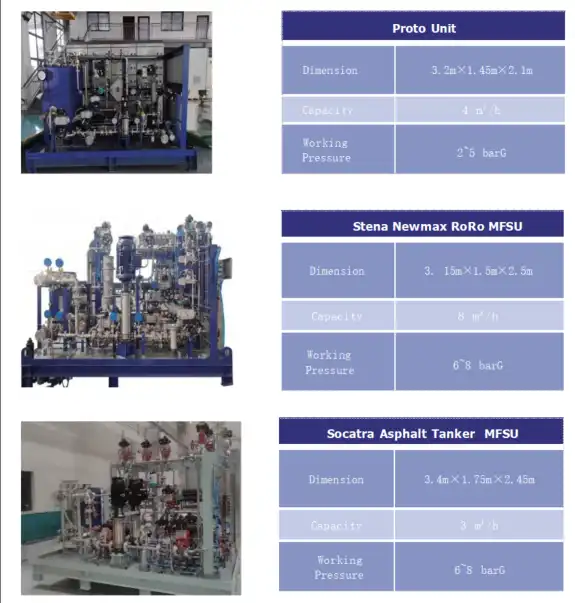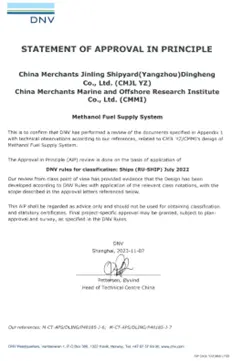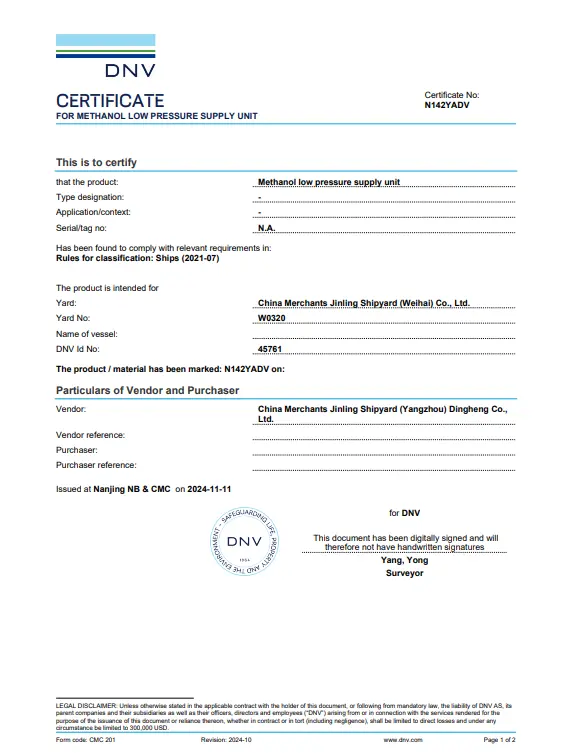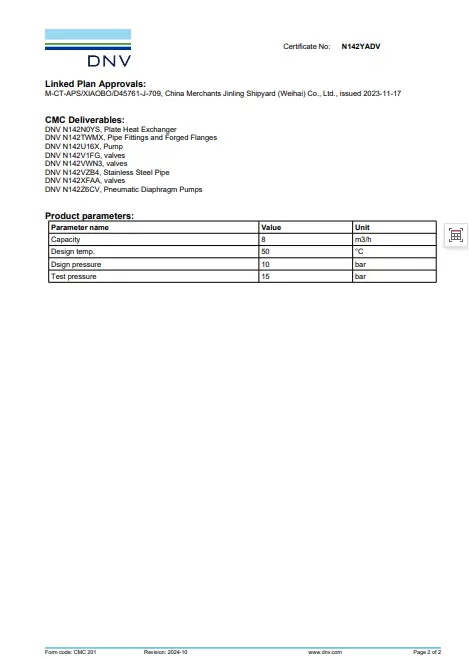Methanol Fuel Transfer System
Overview of the Methanol Fuel Transfer System (MFSS)
The Methanol Fuel Transfer System (MFSS) consists of several fundamental subsystems, including the filling and transfer module, the primary supply unit, auxiliary support systems, as well as safety and control mechanisms. We have the capability to independently design and manufacture MFSS units or deliver fully tailored solutions that meet specific client needs.

WHY CHOOSE US?
1. Broad Industry Expertise – Our personnel are equipped with extensive knowledge in the design and construction of dual-fuel vessels, chemical tankers, liquefied gas carriers, and associated engineering systems.
2. Comprehensive End-to-End Solutions – We provide a complete array of offerings, including Methanol Fuel Transfer System (MFSS), LNG Fuel Supply Systems (FGSS), Ammonia Fuel Supply Systems (AFSS), and LPG Cargo Handling Systems (CHS).
3. Demonstrated Experience – With 19 successful deliveries of clean fuel supply and cargo handling systems—including two MFSS skids for Stena RoRo—we consistently uphold high standards of quality and performance.
4. Leader in Innovation – As a pioneering developer of methanol fuel supply units in the domestic market, we commenced R&D and sales initiatives as early as late 2022.
5. All-Encompassing Lifecycle Support – We offer comprehensive lifecycle services, from system design and manufacturing to installation and multi-unit construction, along with robust after-sales assistance.
Product Specifications

Product Overview
1. METHANOL SUPPLY UNIT – This component ensures that methanol parameters—such as pressure, temperature, flow rate, and purity—consistently align with specifications set by engine manufacturers. It provides stable pressure and flow regardless of engine load and maintains reliability during startup, shutdown, or transitional phases.
2. FILLING & DELIVERY SYSTEM – Designed strictly per SOLAS-IBC Code standards applicable to chemical tankers, this system guarantees the safe management of methanol throughout bunkering, storage, and transfer processes, considering its low flashpoint, toxicity, and corrosive nature.
3. MODULAR STRUCTURE FOR FLEXIBLE DEPLOYMENT – The modular design of the system enables flexible installation and adaptation to the vessel configuration. It can function as a standalone unit or be integrated into a complete system.
4. FULL COMPLIANCE WITH SAFETY STANDARDS – Constructed to comply with both SOLAS-IBC chemical safety requirements and IGF Code standards for low flashpoint fuels, the system ensures safe and compliant operations at all times.
5. CUSTOMIZED SOLUTIONS FOR SHIPOWNERS – Whether for new builds or retrofitting projects, we deliver customized solutions that are dependable and adaptable to operational requirements.
QUALITY ASSURANCE
DNV AIP Certificate



Installation Process
1. Thoroughly review the vessel’s design documentation and interface specifications, addressing any outstanding technical issues beforehand.
2. Gather all necessary installation tools and equipment, ensuring all safety protocols are followed prior to commencement.
3. Transport the prefabricated methanol fuel supply module to the installation site, positioning it using appropriate lifting machinery.
4. Secure the module's base to the vessel structure, ensuring accurate alignment and compliance with flatness and stability standards according to design specifications.
5. Connect the methanol piping, auxiliary pipelines, and control cables, checking the integrity of seals and verifying all electrical connections.
6. Perform subsystem-level and integrated system tests to ensure that the bunkering, supply, and safety control functions operate correctly.
For more product information about Methanol Fuel Transfer System, please leave a message below.
